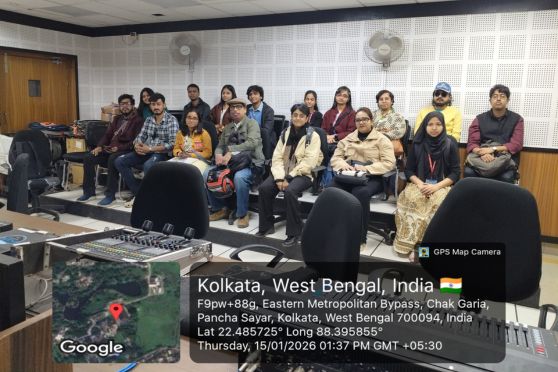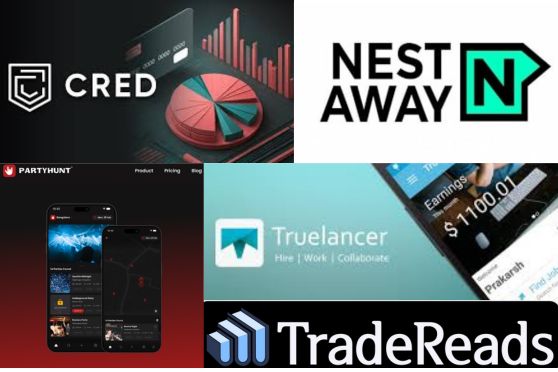Summary
Pratik Gadia and Sagar Bhalotia speak to students at interactive session
The workshops were organised by the Entrepreneurship Development Cell
Ideas to its implementation — 360 Degree Workshops hosted by the Entrepreneurship Development Cell of St. Xavier’s College, Kolkata, took students on a complete start-up journey.
The series of interactive start-up workshops held from March 25 to 27 saw Shark Tank India participants Pratik Gadia, founder and CEO of The Yarn Bazaar, and Sagar Bhalotia, co-founder of TagZ Foods, enlighten the students about the start-up culture. The Telegraph Edugraph is the digital media partner.
Pratik Gadia on how to grow organically in the online B2B space
- I started The Yarn Bazar in 2019. We did not spend a penny on marketing and advertising. For a company like ours, it is important to have high trust and credibility. This is because when you are expecting a buyer to process about Rs 30 to 40 lakh transactions through you, which cannot happen without the trust. This is applicable to any online B2B space. If an e-commerce website does not instil trust, then people will think twice before buying. They may opt for a cash-on-delivery option, which is costlier for the company.
- If you look at any business, online or offline, customer acquisition is one of the biggest costs you have to consider. You need to ensure that the lifetime value of customers is very high.
- During COVID, we came up with guerrilla marketing to tackle customer acquisition. We used some quick methods to attract customers and boost sales. We made COVID awareness posters and sent them to all our customers.
- In guerrilla marketing, the sales process becomes lengthy. So, we came up with our own migrating marketing strategies. These strategies are magnetic in nature and allow you to acquire a buyer or a supplier without a lot of effort.
- Under migrating marketing strategies, we started editorial marketing and our own podcast on Spotify, Google podcasts and other platforms. We used to request promoters of large textile companies to feature in our podcast channel, highlighting their success stories to the entire textile audience. This helped us create one-on-one relationships directly with the owners. We next approached textile influencers and experts who helped us create the brand identity.
- Next, we launched our fortnightly newsletter and took interviews. You can always figure out ways to grow your business organically. Think of things, which are easier and budget-friendly but have a very high impact.
- If something is on trend, it becomes viral within moments and is shared rapidly. Think about such strategies related to your product that can accelerate your growth.
- Make sure you are giving your best to every product and customer. When someone loves dealing with your company, they will spread the word.
- A company is a collection of team members. You have to ensure that every team member is aligned with the thought that they have to provide the most desirable experience. There’s no cost to it, it just allows one to have a perception. These small things can make a huge difference.
- Nobody can know everything. If you know about technology, you might not know about marketing and sales. Always focus on building a great team and hiring people smarter than you.
Sagar Bhalotia on how to create a brand, ideation, solving problems and execution
- After completing BTech from IIT Bombay, I started working in various start-ups. The different roles helped me understand the nitty-gritty involved in launching and scaling up something. In 2019, I co-founded TagZ foods with Anish Basu Roy.
- Creating a brand or a unicorn is very fascinating but the idea behind creating it should be very clear in your mind.
- You may think that in a start-up you’ll be your own boss. That’s not true. You will be accountable here for any kind of issue, face investors, promoters and employees — there’s no escape. So you should be ready to take up challenges.
- Next comes ideation. Do not randomly leave your job till you are convinced about your idea. Do spend your time on ideas and the ideas should be related to your personality.
- Being true to yourself is the biggest hack. You should be very clear about what you want to do and what you like to do and that should coincide.
- The next thing to keep in mind is that it is solving a problem in the market or for the consumers. Then you need to see whether your solution is scalable. If it’s not scalable it will turn into a traditional business.
- After ideation comes execution. In the market, there will be hundreds of start-ups with the same idea that will start probably in the same period of time but out of them one or two will succeed.
- Start iterating and do not wait for the perfect thing to happen. Execute well and if you can do that, that’s where consistency comes in. Have conviction in your idea and consistently work on it.
- The market is very fast so do not be slow. You might have the idea that as a founder you’ll just hire people and sit in your rooms. But you must always be on your toes and be ready to do anything.
- If you feel that there’s something that needs to be changed, do it very fast. If you don’t do it there will be someone else who will do it. That is how you survive the competition. There’s no formula to sustain in the market.
Last updated on 11 Apr 2022

















